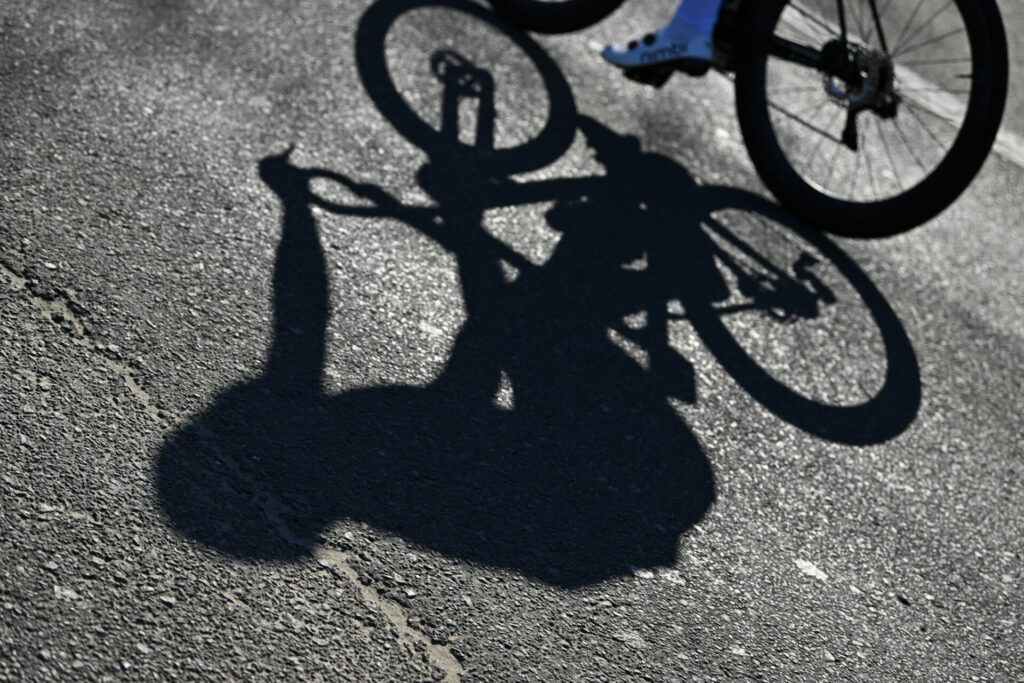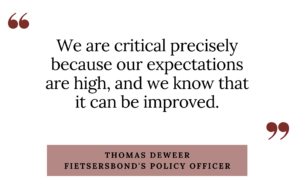The Flemish cycling association Fietsersbond and its French-speaking counterpart GRACQ have offered their evaluation of the cycling policy of the Brussels government in a report and have concluded that while great strides have been made, there is still much work to do.
The associations have praised the introduction of the generalised Zone 30 speed limit areas and the new cycling infrastructure which is being put in place, but insist that the amount of car traffic and the pressures that brings must be drastically reduced.
Since 1 January 2021, the City of Brussels is 30: 30 kilometres per hour is the rule, 50 kilometres per hour is the exception. More than a year later, its introduction is a success: road safety and comfort for pedestrians and cyclists have increased.
Related News
- Brussels to transform part of inner Ring Road into pedestrian zone
- Over 2,000 cycling trail markers added around Brussels this summer
- What you need to know on cycling in Belgium this summer
"Here, the Brussels government has played a real pioneering role," Thomas Deweer, Fietsersbond's policy officer, said. "It is fascinating to see that people are very suspicious in the beginning, as was the case towards Zone 30, but that it is now just normal and works fine."
The city also built a lot of new cycling infrastructure during the Covid-19 pandemic. However, according to the report, the infrastructure on a longer cycle route is of varying quality, and there is still a lack of coherence.
The associations praise the efforts made in the first half of the government's legislature to encourage more citizens to take up cycling. More and more Brussels residents and commuters now prefer the bicycle. There are many training initiatives and positive communication for cyclists. Initiatives also receive financial resources to get people on bicycles.
Room to improve
The city scores the lowest in the report on the reduction of car traffic. The government's Good Move mobility plan aims for 50 car-free neighbourhoods by 2030. In order to achieve this, 25 car-free neighbourhoods must be selected by 2025. Today, only 11 districts have been launched, the implementation of which will take place in three districts this summer (the city centre, Cureghem, Colignon-Josaphat). Another solution for car pressure is reducing parking spaces in public spaces. Good Move plans to eliminate 65,000 parking spaces at street level.
"This seems anything but doable," Deweer said. "Many local authorities do not like to see the parking spaces disappear, but this clashes with the redevelopment of new cycle paths or cycle paths in two directions."
According to the cyclists' associations, the fee for the residents' parking permit, even though it has risen from €10 to €15, is still very low.
"In other capitals such as London, people find this a joke," Deweer said.
The smart kilometre charge 'Smartmove' is on hold for the time being, due to criticism from Wallonia and Flanders. With Smartmove, the charge would be calculated on the basis of car use and vehicle characteristics. The cyclists' union regrets that it has not yet been introduced.
"This would discourage the purchase of heavy, large and powerful vehicles," Deweer said. "A missed opportunity to improve air quality and road safety."


